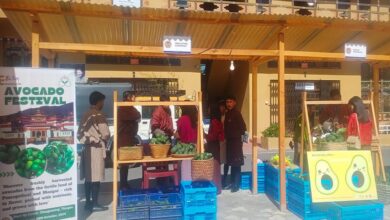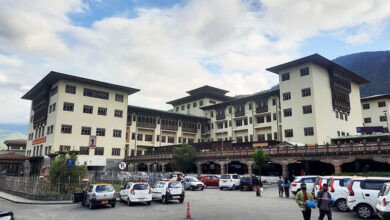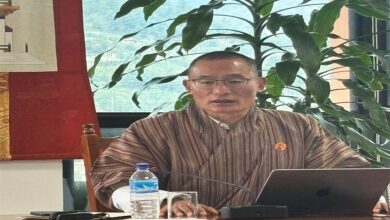Economic diversification crucial for Bhutan: World Bank report
Bhutan needs to diversify its economy beyond the hydropower sector alongside reforms in agricultural and financial sectors for long-term growth and job creation for youth, according to the World Bank’s new report ‘Bhutan Country Economic Memorandum’.
The World Bank’s Resident Representative for Bhutan, Adama Coulibaly, said that economic diversification is crucial for Bhutan to increase resilience, create jobs, and sustain growth.
“By fostering a business-enabling environment and promoting a programme that provides excellent training on targeted technical and professional skills to the youth of the country can attract foreign direct investments and accelerate job creation in key sectors that can support the country’s growth ambitions,” he said.
He added that Bhutan can leverage its natural capital and international recognition as the first carbon negative country in the world to boost green resilient and inclusive growth.
The World Bank report states that despite Bhutan making significant strides in reducing poverty and advancing human development, structural transformation has been slow and job opportunities have been limited, especially for the educated and the youth.
The country enjoyed high real GDP growth averaging 7 percent from 2001 to 2019, largely driven by the hydropower sector. In 2021,
hydropower contributed more than a third of goods export and domestic revenues or 16 percent of GDP.
In recent years, Bhutan’s GDP per capita increased at a high of 6.3 perecent annually and gross national happiness index per capita reached USD 3,040, close to the World Bank’s upper-middle-income threshold.
However, the Bhutanese economy faced difficulties because of the Covid-19 pandemic and other global challenges.
The unemployment rate increased from an average of 2.8 percent between 2015 and 2019 to 5.9 percent in 2022, with urban and educated youth being disproportionately affected.
The World Bank report identifies several obstacles to economic growth, including a small private sector, low productivity in microenterprises, and inefficiencies in the labour market.
It states that the non-hydro economy is largely service-oriented with a narrow range of resource intensive manufacturing industries.
The annual growth of the non-hydro sector averaged 6.9 percent from 2001 to 2019, driven by services and the non-hydro industry.
Further, the report also states that the productivity gains have been limited by a significant portion of the labour force being employed in low-productivity sectors such as agriculture and public services.
The labour market in the agriculture sector comprises 40 percent of the total workforce, followed by the public sector (25 percent, including education and health).
Hydropower, while vital, is capital intensive, and offers limited job creation, employing less than one percent of the labour force.
“A diversification of the renewable energy mix with investments in solar, wind, and geothermal could increase Bhutan’s clean energy generation capacity with positive impacts on its green growth strategy,” the report states.
Large foreign currency inflows from hydropower projects have led to an appreciation of the real exchange rate, a phenomenon known as ‘Dutch disease’, which undermines the competitiveness of the non-hydro sector, states the report.
Identifying key barriers to higher growth, the report identifies three areas for urgent action.
The report recommends facilitating economic diversification by incentivising the growth of non-hydro industries and the private sector. Economic diversification will benefit from allocating a much larger share of hydropower revenue towards domestic investment in tangible assets including infrastructure and industries, states the report.
Currently, a majority of 54 percent of the domestic revenue, of which 40 percent comes from hydropower, is consumed by public spending on wages, goods and services, rather than financing investments.
The report also recommends enhancing agricultural productivity and selective crop diversification and certification to facilitate access to niche markets. Raising agricultural productivity by diversifying into high value crops as per Bhutan’s comparative advantages can support the broader process of diversification by releasing labour for non-agrarian sectors and boosting agricultural exports.
The report also highlights that financial sector reforms are critical to support the process of economic diversification.
It recommends strengthening risk management practices, creating a level playing field between state-owned commercial banks and other commercial banks to ensure greater contribution from private finance as critical areas of reform.
“Financial inclusion is essential for inclusive growth,” World Bank senior economist and co-author of the report, Rangeet Ghosh, said. “In Bhutan digital technologies can play a vital role in promoting financial inclusion, by enabling faster and more affordable national and international payment systems, facilitating collateral-free lending, and introducing innovative financial products.”





